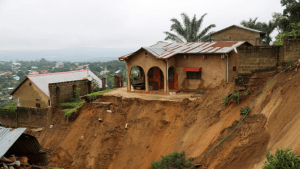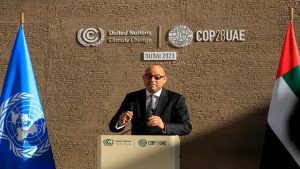All roads lead to Egypt for the COP27 climate talks. For 12 days, world leaders, climate scientists, negotiators, activists, and other stakeholders will take stock of the planet’s future. African scientists on the other hand, are ready to provide scientific evidence of the impact and damage of climate change as well as innovative solutions to mitigate the crisis.
African scientists are sharpening their knowledge to solve problems associated with climate change, from blistering heat conditions, droughts, floods and changes in rainfall patterns. For Africa, the climate crisis has also become a health crisis.
Some scientists say Africa will soon have to deal with more waterborne, and mosquito-induced infections.
This is because mosquitos are now spreading to more habitats as the temperature gets warmer. They’re calling for more investment in epidemic preparedness planning to prevent disease outbreaks from occurring in parts of the continent where infectious diseases such as malaria are still a major problem.
Dr Vito Baraka from National Institute for Medical Research in Tanzania is one of the scientists.
“For Africa to be able to cope, there has to be a support mechanism especially from developed countries to make sure they consider a solution that will help Africa to cope in terms of mitigating and adapting to the impact of climate change,” says Dr Baraka.
While the scientists believe that developing countries must do more to reduce carbon emissions, their focus is on finding African solutions to global problems that hit the continent the hardest. Scientists from Uganda have come up with a new clean energy solution in a country that is heavily reliant on coal.
“We have come up with an innovation in northern Uganda which we call Green Energy. The Green Energy is basically agricultural residues which have been charred and mixed and which can be used as charcoal,” says Dr Atube Francis of the Gulu University of Uganda.
Dr Dzigbodi Doke is a scientist from Ghana who is studying the composition of trees found in the savannah of the west African nation, all of this in the quest to boost rural women’s ability to earn a living from planting trees.
“For trees and women are we are looking at the products that they are already producing from the trees, for example. So, if they can get more income from their produce, they are likely to nurture and preserve the trees,” says Dr Doke.
#COP27 is a moment for world leaders to regain momentum on climate change. To move from negotiation to action. Together. pic.twitter.com/aIb0P22X0Y
— UN Climate Change (@UNFCCC) November 1, 2022






